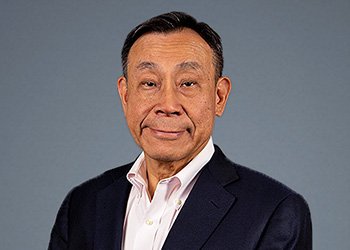Joslin Diabetes Center's Dr. George King on the Differences within a Diagnosis
 When George King, MD, first joined the faculty at Joslin Diabetes Center in the 1980's, there was little understanding of diabetes in Asian American and Pacific Islander (AAPI) populations. Approaches to care for Asian Americans or any minority groups were not even discussed.
When George King, MD, first joined the faculty at Joslin Diabetes Center in the 1980's, there was little understanding of diabetes in Asian American and Pacific Islander (AAPI) populations. Approaches to care for Asian Americans or any minority groups were not even discussed.
"When we were approached by Asian American community health centers for advice about diabetes care due to rapid increases in prevalence, we had to develop customized approaches from very little information and support," says Dr. King. "These experiences reinforced the importance of community advocacy in all aspects of life.'
Dr. George King is the Chief Scientific Officer at Joslin Diabetes Center. Founded in 1898, the Center's mission is to find new treatments for diabetes and its complications. Joslin has placed equal emphasis on research and patient care over the past century, building its reputation as the most well-known center in the world for discovering innovative treatments. Dr. King explains how valuable it is to be a part of Harvard Medical School, and to be closely associated with many of the academic research institutes, clinics and hospitals in Boston. Every day, he and his colleagues are pooling their efforts with a larger medical and scientific community in order to achieve their mission.
Because minority groups in the United States are at higher risk of diabetes compared to the general population, researchers and clinicians at Joslin have made special efforts to develop approaches that are culturally appropriate for a variety of populations.
"All of us are different in certain ways." says Dr. King, "These differences are important since they bring new perspectives to healthcare. For example, diabetes in AAPI populations occurs at lower body weights compared to other groups. Since millions of people who are not AAPI also have diabetes at a low body weight, understanding diabetes in AAPI people will have major impacts across many different groups."
One of Dr. King's greatest inspirations in professional life is his mentor during his residency at the University of Washington, Dr. Wilfred Fujimoto, a Professor Emeritus of Internal Medicine.
"Dr. Fujimoto served Japanese-American communities in Seattle by studying diabetes in that minority group." Dr. King says. "He pioneered new research that showed us the differences and similarities in diabetes for AAPI and other ethnic groups."
During his "Japanese American Community Diabetes Study," Dr. Fujimoto brought together investigators from a wide range of disciplines, and focused on how lifestyle factors could increase the risk of diabetes for a specific population. Dr. King is working towards a similar legacy today, coordinating with talented teams in Boston and in the Asian Clinic at Joslin to better understand differences in diabetes, for the good of all.
